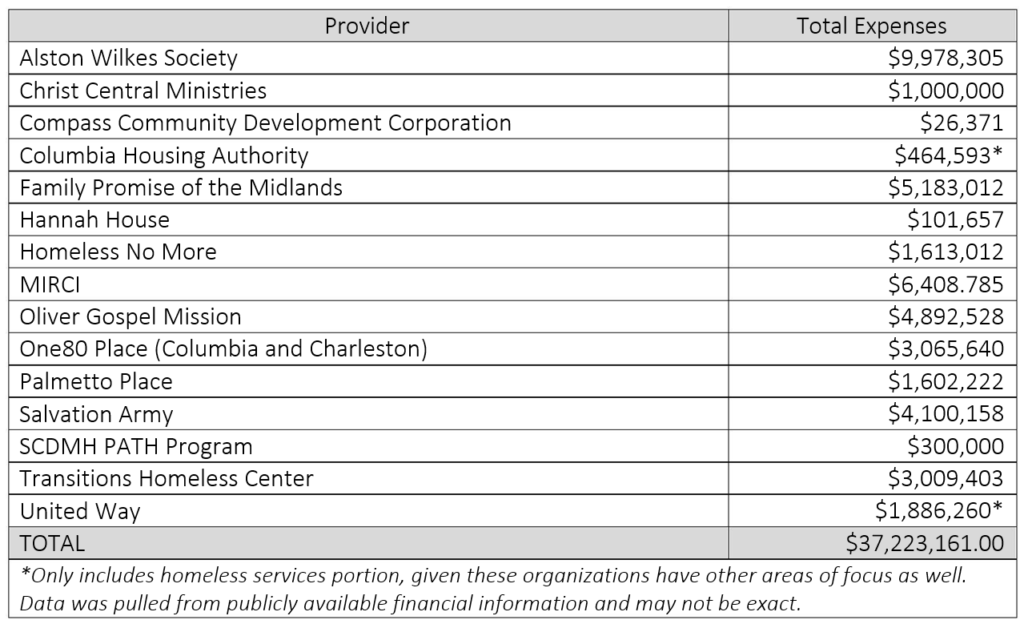Background: In February 2022, Mayor Rickenmann tasked Councilwoman Bussells with leading the Taskforce to Prevent and End Homelessness. Since that time, the Taskforce has formally convened four meetings (May 17, 2022, June 29, 2022, August 17, 2022 and September 21, 2022), which is consistent with the short-term timeline that was provided within the description of the taskforce.
In between these meetings, Councilwoman Bussells has been meeting with several stakeholder groups including but not limited to: Department of Mental Health, Transitions, MIRCI, Fast Forward, Columbia Council of Neighborhoods, Richland County Solicitors Office, Five Points Association, Main Street District, Columbia Police Department, University of South Carolina, and people experiencing homelessness.
The scope of the taskforce has been to focus on the chronically homeless, that is, the unsheltered homeless that have not engaged with existing services for a multitude of reasons. According to CPD, there has been a drastic uptick of crimes associated with the unsheltered homeless over the last two years. It is estimated that the unsheltered population is around 250 people. These are the individuals who are most likely to be interacting with our entertainment districts and downtown neighborhoods, including areas in Forest Acres, Garner’s Ferry and Harbison.
The City has invested one million dollars in general funds towards homelessness services, awarded to United Way as the homeless services coordinator, with a pass-through to Transitions (~$300,000) for security, and USC’s Housing First Model. The City has also invested over 2.5 million dollars in Housing and Urban Development (HUD) funding towards housing, with 80,000 awarded last year to MIRCI and Homeless No More.
Finally, as of June 2022, the City expanded its Pathways Initiative to include 5 mental health clinicians that will be embedded in CPD to help address mental health crises, especially among the homeless.
Councilwoman Bussells has been working with Inspire Real Change, a research firm to understand and catalog to number of homeless service providers in the Columbia region. There are over 100 services available for different populations experiencing homelessness in the Columbia area, and over 25 faith-based providers feeding the homelessness.
Preliminary estimates suggest that we spend approximately 37 million dollars on homelessness:

With this amount of spending, one thing is clear, what we are doing not working, with the growing number of challenges reported by our neighborhoods and business owners.
One of the key themes of our discussions is the lack of accountability and collaboration among various stakeholders working within the field of homelessness. From the city’s perspective, there has been no
real push to hold grantees and service providers accountable for specific outcomes. Existing ordinances have not been consistently applied. The city has not been involved with the continuum of care or the
Midlands Area Consortium on Homelessness.
Recommendations: Based on the discussions with stakeholders, among taskforce members, and city staff, here are some recommendations for staff and the current city council:
- The City should hire a director of homeless services and a project manager who will manage the
dollars allocated for homeless services from the general fund and through community development. Both pots of money will be tied to specific and measurable outcomes to address the chronically unsheltered homeless. – The City has hired a director of homeless services and a
homeless services project manager.
a. Coordinate our services: That is where you are seeing the approach of having homeless coordination housed in the city to help develop outcomes, shared understanding of success, and collaboration with our providers. We hope this will be a way to resolve issues that result from working in silos or not having a shared understanding of the things we want to accomplish.
b. Prioritize keeping formerly known as the Inclement Weather Center open year-round. Effective November 1, 2022, the Inclement Weather Center now operates as Rapid Shelter Columbia Overflow.
c. Compile annual data on the number of individuals using sheltering services and develop measurable outcomes that create accountability change over time. Data for the emergency shelter is reported through HMIS. Track where people go when they leave.
- The City should work with its partners to increase beds and single occupancy beds for the chronically unsheltered. Some of that will be addressed through Rapid Shelter Columbia and the 50 Pallets, but our work continues in terms of identifying permanent housing solutions for those triaged through the Rapid Shelter. Consider using Community Development funds to buy non-congregate (e.g. old hotels) housing for this priority population of unsheltered homeless.
- The City should put out a new RFP for a city homelessness service provider. Given that the coordination of services has now been brought in-house, the City will no longer be using an RFP process.
- The City should launch a public awareness campaign as needed to assist with increasing awareness about the ways in which we are addressing homelessness, including the challenges with taking on the burden of homelessness for the entire region.
- The City should explore ways in which to have more of a formal role in the continuum of care (CofC), which is currently managed by United Way of the Midlands. The Midlands CofC serves 13 counties, from York to Allendale. This has indirect consequences on the burden of homelessness that Columbia has. Out of 19 counties in the Midlands, Columbia is the only city with a low barrier shelter like Transitions. The funding formula is lower in South Carolina than other states. We need to push to our delegation the importance of getting more funding to address those needs.
a. The City should consider the development of a non-profit dedicated solely to administering the CofC that includes neighboring municipalities including Lexington, West Columbia, Forest Acres, etc…
b. The City should consider recommending reducing the number of counties served by the MACH, and creating a new district for the other counties.
- The City should explore the following ordinances:
a. Requiring community groups to report that they will be feeding at least 48 hours before the event/requiring permits for meal sharing in the city limits.
b. Revisit some of the ordinance suggestions that city staff have presented to previous councils around panhandling. - The City should explore how/what criteria that its homeless services and public transportation providers can “ban” individuals from their services, and what the process is to appeal/reinstate services.
- The City should convene a meeting with Pastor Jimmy Jones to discuss mutually agreed upon solutions to address the dangerous congregating in his property that has led to two deaths in the last three months and several arrests for drug possession and trafficking.
- The City should consider moving Transitions to another location to address the growing challenges with the location being in the entertainment gateway.
- The City and its partners should identify and create infrastructure for services after 5:00 p.m. While we have expanded the mental health clinicians within our Pathways Unit, there continues to be a need for us to create a system where a business owner or community member can call and be directly connect to a set of services after 5:00 p.m.
- The City should advocate to the state legislature on bail reform, competency, and funding for mental health outreach teams given the burden of homelessness that Columbia takes on for all other regions and the lack of services available after 5pm.
- The City should explore ways to crack down on single use alcohol sales, especially with repeat offenders like the Main’s Best Convenience Store “blue store.”
- The City should continue to streamline and coordinate feedings (meal shares) that are occurring across the city.
- The City should create a greater presence of beat cops within the hospitality districts, use our Yellow Shirts Program, and ensure that we have resources to help people that may be experiencing a mental health crisis and address those individuals who may be engaging in criminal activity.
- City Council must be willing to hold a united front and ensure that our citizens understand that no person — no matter the circumstances — should have to live on the streets. We must ensure that our public spaces are safe, that they are accessible to all, and everyone in need of a suitable place to stay has access to one. City Council must be willing to step up and say, things aren’t working.
2022 Taskforce to Prevent and End Homelessness Members
Honorable Aditi Bussells, Chair, City Council At-Large
Honorable Edward H. McDowell City Council District II
Honorable Will Brennan City Council District III
William “Skip” Holbrook Columbia Police Chief
Matt Kennell City Center Partnership
Steve Cook Five Points Association
George Whitehead Department of Probations, Pardon and Parole
Allison Farrell SC Department of Mental Health
John Wilkinson Elmwood/Downtown Coalition of Neighborhoods
Bret Kloos USC Department of Psychology
Kieley Sutton Assistant Public Defender
Treacy Dobbins Inspire Real Change (Consultant)
Matthew Brock Associate Probate Judge
Antonio Flores Jr. Wal-Mart
Doreen Skelton Advocate
Jamar Ogburn Advocate

